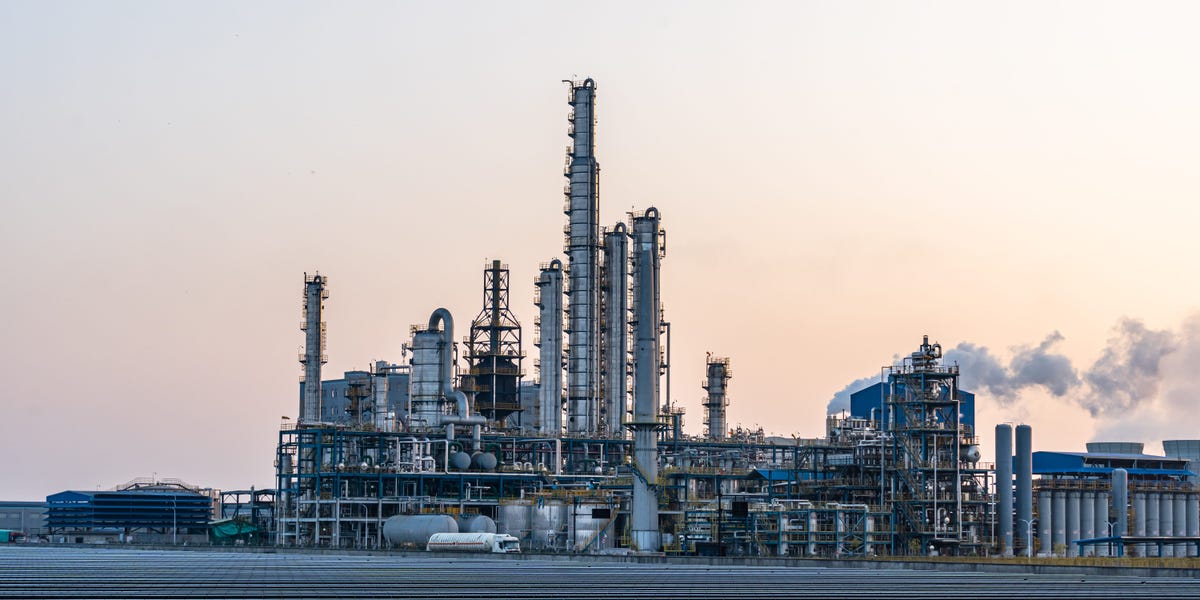Gotta have somewhere to force all those children to work, right?
It’s about time. I would love to see Made in USA for everything I purchase.
That’s some good news.
This is some great news. De-industrialization has created a skills gap in the trades that is going to take a generation or more to overcome. So many industries are utterly dependent on skilled people that have many years of experience, and those people are aging out of the workforce too rapidly to be replaced.
The culture shift in the 80s, 90s, and 2000s which treated “blue collar” as something for young adults to try to avoid is partially responsible, but without the demand for those jobs there was no push to fix that.
Fantastic news for American workers and economy
it’s good in the short term but realistically this news is a canary in the coal mine moment
we are decoupling our economies from the global system - increasing the chances for cold and/or hot war
The US is not decoupling from the global system, they’re just lessening their dependence on their adversaries and countries vulnerable to their adversaries for key sectors. The US can only stay prosperous if they remain a central player in the global economy and they know it.
Imagine you’re Farmer Bob in a temperate region great for growing apples and I’m Farmer Fred in a tropical area ideal for bananas. We each like bananas and apples, so tried growing both fruits, each of us harvesting 12 of our specialty and 6 of the other, making a total output of 36 fruits.
But then, we learned about the power of trade. We focused on what our lands did best: I harvested 24 bananas, you 24 apples. We swapped half our produce, and like magic - We both had 12 bananas and 12 apples each, totaling 48 fruits, a 25% increase just from trade.
But what if we stopped trading due to trust issues? We’d revert to the less efficient system, losing out on the additional produce.
Now, think of this on a global scale. When countries specialize and trade, we all gain. But as governments decouple from global trade, they’re choosing to lose these benefits, making economies less efficient. It’s a dangerous path where everyone ends up poorer.
And for our governments to deliberately choose a path that makes us all poorer - that means there’s an unchecked growing tension. It’s almost palpable. We’re already living through a Gilded Age nearly a century after the last one… what happened after the Gilded Age?
Call me a doomer but this is alarming news, even if understandable from a national security perspective
what you say is ideally true, but it ignores the complexity of the system: free trade works great if everyone acts in the best interests of the whole, but game theory tells us that even a few bad actors have the potential to ruin the whole thing (this plays out time and time again with monopolies, negative externalities, etc)
plenty of countries around the world don’t play fair, and that leaves everyone else worse off… you can’t assume the game is fair when it’s actually rigged
we can still encourage trade, fairness, interconnectedness, and efficiency whilst not falling prey to being taken advantage of
we can’t let perfect be the enemy of good here: there’s a balance to be struck, until all of the worlds economies play by the same rules
You’re not a “doomer”, as I read it more like the opposite- your defense of global trade is optimistic. Trade and specialization doesn’t work nearly that cleanly in practice.
Companies and governments saw the disruptions of the past few years and realized that there are unaccounted for costs (and benefits) to the global supply chain. COVID, shipping disruptions (strikes, Evergreen, prices), the chip shortage, etc. all have taught a lesson about the diversification of supply chain risk. Decentralization isn’t less efficient when you include those costs. So it makes more sense now to make goods in America for America, and make goods in China for China. Not all goods, obviously, but the scales have shifted…and that’s a good thing for the health of global supply.
To extend your point, the fruit analogy assumes shipping is completely frictionless. In reality there are all kinds of downsides to shipping everything 12,000 miles across the world, both social and environmental. If you ship out 12 bananas and the cargo ship, train, or truck gets delayed, suddenly you have 0 bananas. Not to mention all the extra CO2, which the companies get to conveniently ignore.
Yes this is great, it also helps us deal with China.
@sirboozebum I really hope for the people in all those places that went to shit when the factories got closed, that this will bring income and luck to them.
Oh they aren’t building THERE, they’re building near major cities
Most of those places are major cities…….you guys forget how many people still live in the rust belt?









